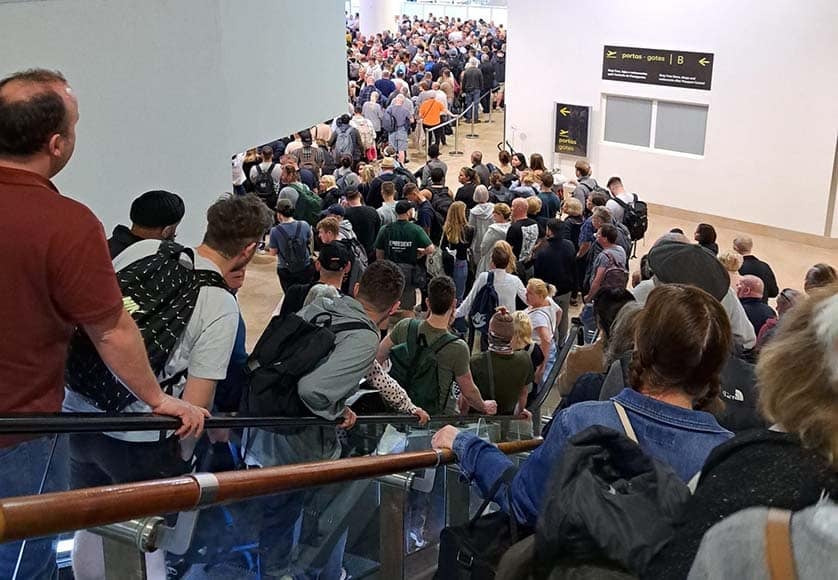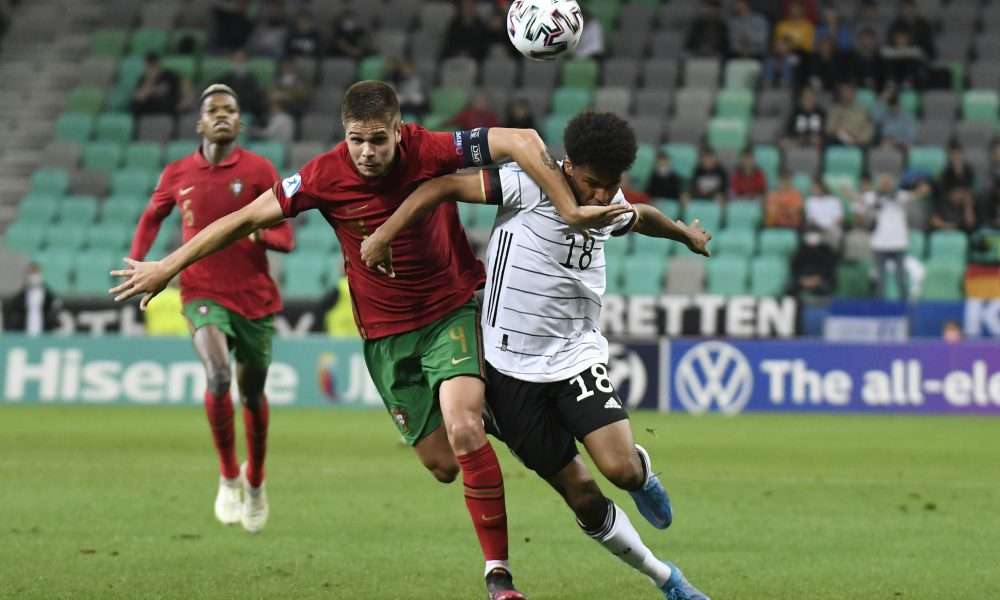
Until September 4th, the Olivier Depree Center for Contemporary Creativity has launched the first batch of the Franco-Portuguese season in tours by inviting women artists exclusively. Already historical (Vieira da Silva, Helena Almeida) or rather recent finds (Ana Vigidal, Patricia Almeida), they show the vitality of the local scene or are published in big capitals such as Paris, London or Munich.
” The path of these artists has its roots in Portugalconfirms Isabel Motta, Chairman of the Board of Directors of Calouste Gulbenkian FoundationAnd But it won’t take long for us to see that their imaginations and even their goals (provided these artists have a purpose in mind) soon overflow with narrow geographic notions and only notions of national identity. This introduction to the exhibition “All I Want” at CCCOD in Tours says that it is not about a national assertion but rather a proposal that aims to show the vitality of Portuguese art in the feminine. It deals with questions of female identity as well as colonialism or a sustainable future. It is part of the 2022 program Between France and Portugal across the season, which was carried out in France by the Institut Français.
Portuguese female art
Self-portrait (1900) by Aurelia de Sousa, presented at the exhibition All I Want, CCCOD de Tours, 2022 (© Guy Boyer)
The path begins on the ground floor of the building, which was built in 2017 by the Portuguese agency, Aires Mateus. In the Dark, the paintings of early twentieth century artists were criticized with their original proposals, notably the portraits and self-portraits of Aurelia de Sousa, Maria Helena Vieira da Silva and Sarah Afonso. ” Aurelia de Sousa refers to the first historical moment of awareness of the author’s assertionexplained the curators on the exhibition, Helena de Freitas and Bruno Marchand. By obsessing over the obsessive nature of his self-representation and designing a sure look turned outward, the artist underscores the transformation of the artist’s place in art, from inspirational to author. “.
Vieira da Silva is essential

A Study of the Theater of the Eyes (1980) by Maria Helena Vieira da Silva, presented at the exhibition “All I Want”, CCCOD de Tours, 2022 (© Guy Boyer)
A very impressive collection of paintings by Helena Vieira da Silva forms the heart of this historical section. from a mysterious self-portrait (I’m thinking of the painting1936-1937) with compositions intersecting a maze network of lines in perspective (Chess game, 1943), the first part of his work unfolds wisely. We gladly stop by this belated study of eyes theater (1980) In ink and felt-tip pens on paper, he recalled the artist’s taste for theater and theatre. to La Scala (Al-Ayoun) in 1937 AD Gerard Philippe Theater (1975), she developed a series on outlook.
Amazing Paula Rego

Vanitas (2016) by Paula Rego, presented at the “All that I want” exhibition, CCCOD de Tours, 2022 (© Guy Boyer)
Between Aurelia de Sousa and Menez, Paula Rego’s incredible victories, huge, with the Bastille trilogy titled Vanitas. In the center, the Portuguese London-based artist represents herself victorious, in a gorgeous yellow dress, arms crossed in front of a blue curtain, like a stormy Madonna. On either side we find her seated, her head resting on a table, surrounded by small skeletons or wielding a scythe. And so Paula Rego rises above death, stronger than the Grim Reaper.
Everyday life

Ambiante. Sala de Jantar (1971) by Ana Vieira, presented at the exhibition All I Want, CCCOD de Tours, 2022 (© Guy Boyer)
Among the forty artists selected, it is difficult to highlight one rather than the other because the proposals are so different. From Helena Almeida’s body images to Anna Vera’s makeup environments, the approaches were diametrically opposite. However, on the first floor of CCCOD, the presence of everyday life and mass culture in Art Nouveau seems to be the common denominator. On the walls of the dining room made of nylon fishnet, everyday objects such as blue ghosts appear: furniture, flower bouquets, curtains … a world that can also seem to be a confinement for women.
nature and architecture

Stone Free (2012) by Angela Ferreira, presented at All I Want, CCCOD de Tours, 2022 (© Guy Boyer)
The house is still found in the cubic sculpture by Patricia Garrido, MOVES LIKE KOBO (2013), made up of window and furniture elements. A little later, even if it’s not easy to read, Angela Ferreira’s piece fits perfectly into this chapter on life and construction. The nature paintings by Maria Capello contrast with the wooden structures of Angela Ferreira, occupying the volumes of caves that can be seen in the nearby photographs.
brutality of reality

A Caminhada do Medo X (2011) by Graça Morais, presented at the “All that I want” exhibition, CCCOD de Tours, 2022 (© Guy Boyer)
The union struggle of railway workers appearing on Carla Felipe flags or the desperation of immigrants on the paintings of Graça Morais, politics is also present in the context of the exhibition. In these works, the curators concluded, “ Raw images bring back the brutality of reality in the form of a direct metaphor, showing us moments of the current drama and freezing, once again, the historical drama of humanity “.






